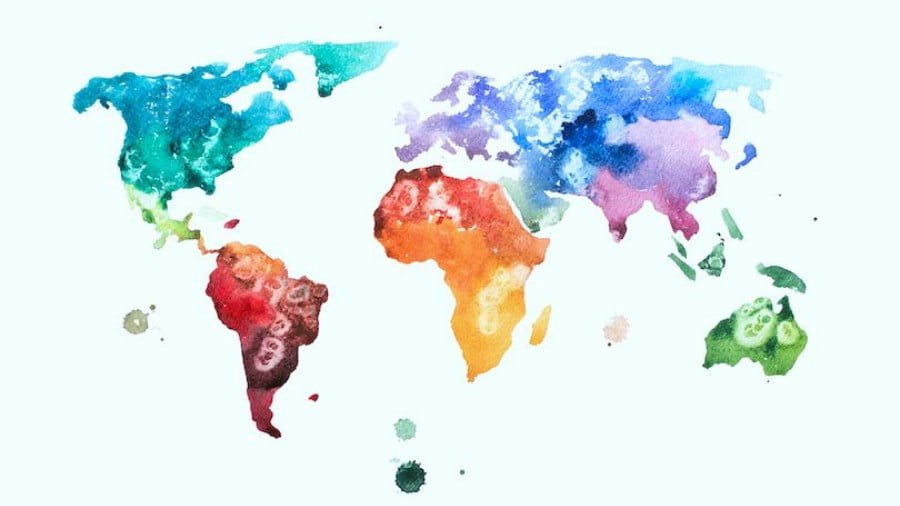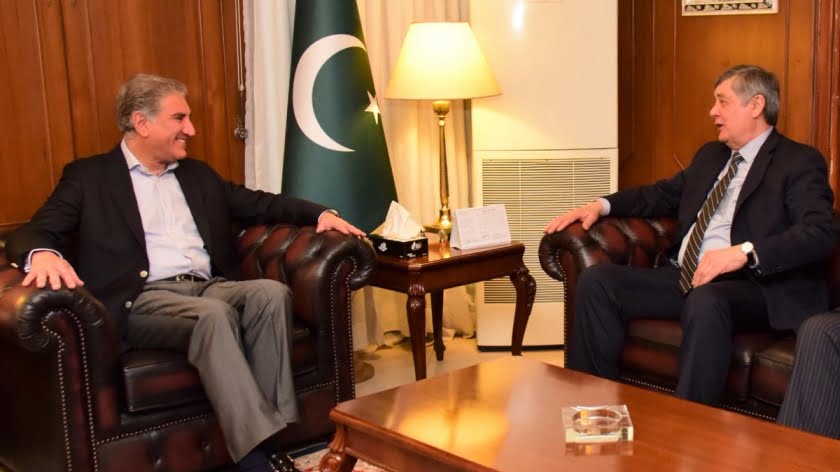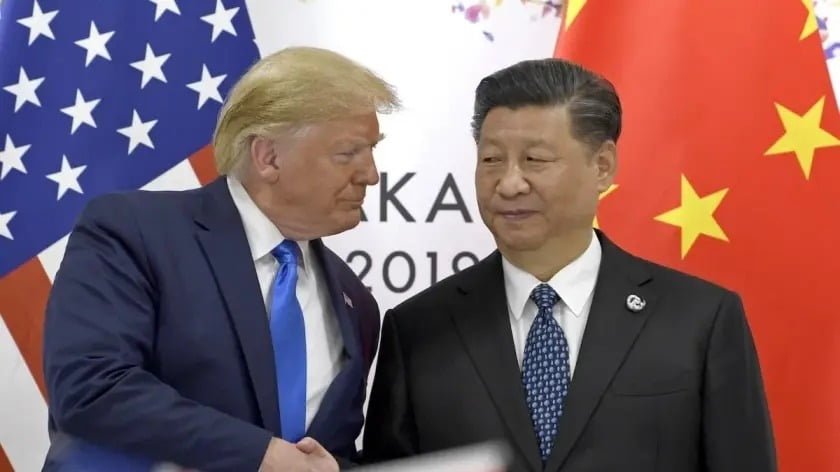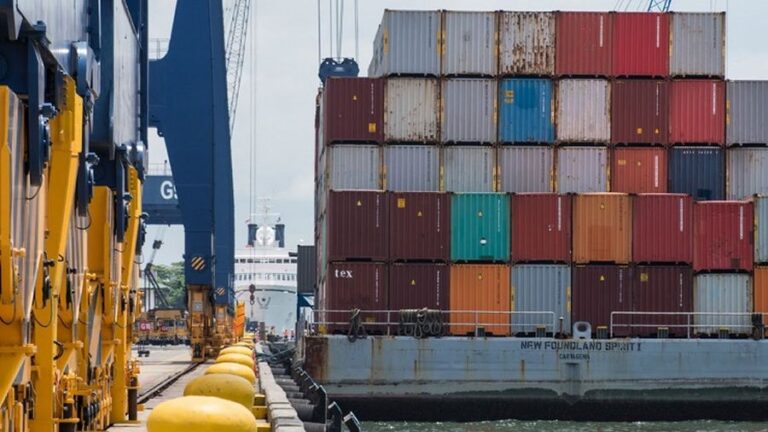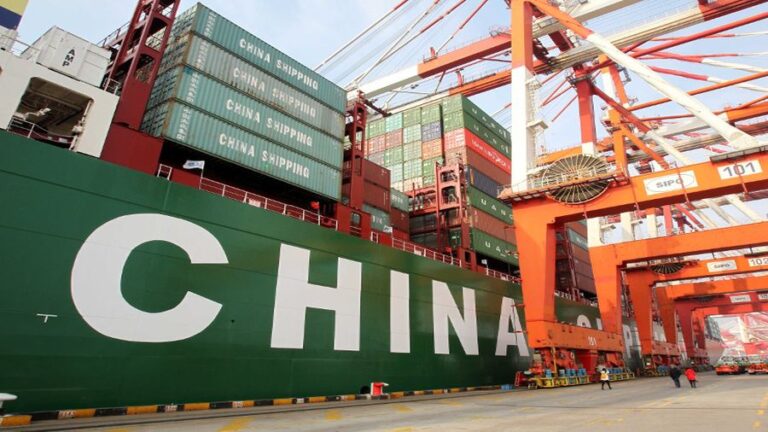Beyond Coloniality of Internationalism
Envisioning a world beyond global coloniality entails unthinking thinking of today and indeed an epistemic revolution which enables a writing of a different future. According to Hamid Dabashi (2019: 183) Europe and the rest of the world have long ‘‘collapsed on each other’’ and what is urgently needed is ‘a switching off and switching on of a vastly different phantasm of peace from the phantasm of war, rethinking what is dignified from what is dishonourable.’’ How this can be achieved Dabashi (2019: 183) suggests that ‘by first and foremost putting people before war, reality before abstractions, Christians before Christianity, Jews before Judaism, Muslim before Islam, atheists before old and new atheism, agnostics before agnosticism’’ because ‘‘reality has escaped the bastille of abstractions, and the abstract vacuity of their commanding metaphysics has obediently yielded to a vastly different intuition of transcendence.’’ Indeed, we can’t continue to oscillate between the world constructed yesterday for today and the world we wish to create beyond today. We have to rethink and unthink the world beyond the empire, after the empire, more precisely against the resilient metaphysical/cognitive empire, and even more revolutionary, despite the empire.
Alas, today, global coloniality masquerades as ‘the international.’ As defined by Ramon Grosfoguel (2007) global coloniality expresses how the modern world’s technologies of subjection shifted from the reality of physical empires to a more complex and invisible hetararchies/entanglements of global power that continue to subject all aspects of human life to it to a Euro-North American-centric world system. This means that the anti-systemic forces which were pushing for a decolonized world were not too successful in delivering a deimperialized, decolonized, deracialized, dehierachized, debourgeoised, and depatriarchized postcolonial and post-racial world (Ndlovu-Gatsheni 2021). Consequently, being human itself has remained socially classified, racially hierarchized and gendered (Wynter 2003; Maldonado-Torres 2007).
Nature has remained reduced to a natural resource available for endless capitalist exploitation. Knowledge remains subjected to imperial episteme, data mining, extractivist methodologies, instrumentalization, commodification, and commercialization (all in the service of cognitive needs of global capitalism). Human labour has remained subjected to various exploitative regimes of racial capitalism beginning with enslavement to modern contractual forms (Robinson 1983; Hartman 1997). Human languages continue to be encircled by the six hegemonic ones namely English, French, German, Italian, Spanish and Portuguese (see Grosfoguel 2011, Ndlovu-Gatsheni 2021a; Ndhlovu and Makalela 2021). However, like all other hegemonic systems, global coloniality has always been contested, resisted and even forced not only to retreat and reconsider some of technologies of subjection but to also make concessions and reforms of the system of domination. As noted by Homi Bhabha (1994), the colonial system together with its colonial discourses while having the hegemonic intention of subjecting all aspects of human life to its power, it was compromised and weakened by the fact that it was never internally coherent and complete, it was always incomplete, ambivalent and internally conflicted; opening itself up to contestations, subversion and resistance. This reality, however, does not diminish the urgency of the call to name correctly what is studied in International Studies as a colonially constructed ‘‘international’’ with the complicity of elites from the rest of the world. This is why under such a problematic “international,’’ is relentless resistance to any efforts aimed at remaking the world beyond its racial, colonial, capitalist, and patriarchal configurations. Even the celebrated shift from ‘‘empire’’ to ‘‘nation-states’’ amounted to a reshuffling of old cards and this was necessary to enable US hegemony and its global coloniality.
The postcolonial new world order of nation-states and perpetuation of global coloniality
The reality which seems to elude International Studies is that the very contemporary institutions, systems and structures underpinning what is masquerading as ‘the international’ are actually out-dated vis-à-vis the unfolding realities on the ground. What exist as a postcolonial new world order was as old as it was new in the sense that it was characterised by continuities within discontinuities. The reality of continuities within discontinuities prompted Mahmood Mamdani (2020: 15) to pose two soul-searching questions: “Why had Europe’s past become our present? Why were nationalist elites reviving the civilizing mission that colonialism had abandoned when it embraced the defense of ‘tradition’?’’
Clearly, one can argue that the struggles for decolonization and their visions of a new world system became hijacked by the forces working in the service of the modern world system. As an emerging superpower, the United States of America (USA) from the time of Woodrow Wilson’s famous post-World War I Fourteen Points of 1919, the Atlantic Charter of 1941, to the United Nations Charter of 1945, it was pushing the agenda of national self-determination not as a progressive decolonization initiative but so as to dismantle the empires which were considered to be a hindrance to the march of US capital across the world (Sharma 2020). The very act of reducing the liberatory horizon of decolonization to attainment of ‘nation-state’ status amounted to the submission of decolonization to the agenda of metropolitan bourgeois capitalists and local petit-and comprador bourgeois capitalist elites of the rest of the world at the expense of the blood and sweat of the peasant and workers who constituted the foot soldiers.
It is not, therefore, surprising, that as part of implementation and realization of the postcolonial new world order, the world became even more bordered—a problem which is haunting our contemporary world—because it created what Nandita Sharma (2020) termed ‘‘a people of the place’’ known as ‘natives’ and ‘‘a people out of place’’ called ‘migrants.’ Sharma’s correctly critiqued of the postcolonial new world order for not only reproducing but also normalizing “a racism in which political separations and segregations are seen as the natural spatial order of nationally sovereign order’’ (Sharma 2020: 4). Sharma (2020: 4)’s conclusion is therefore very revealing of the continuation of global coloniality under what has been celebrated as the postcolonial new world order in which “nationalism become the governmentality,” the “separation of ‘national subjects’ from Migrants its biopolitics, and ‘national sovereignty’ its leitmotif.”
Standing on the shoulders of giants and rethinking the international
The reality is that ‘the international’ which embraces humanity with its particularities and pluralities, must not be taken as a given and an existing phenomenon is informed by a deeper analysis of the current constitution, architecture, and configuration of the modern world order. It is also informed by deeper evaluation of the decolonization struggles of the twentieth century and critique of what was delivered as liberation. Taking these critiques together it makes a better sense to think of ‘‘the international’’ as an aspiration so as to avoid embracing global coloniality. The increased and intensified planetary human entanglements enabled by mobilities and migrations and its repopulations of the modern world make this aspiration very important. Achille Mbembe (2019: 13) is correct to posit that the present conjuncture is characterised by “the ongoing redefinition of the human in the framework of a general ecology and henceforth broadened geography, one that is spherical and irreversibly planetary.’’ Therefore, this reality of increased and intensified planetary human entanglements brings into conceptions, understanding and studies of ‘‘the international’’ the pertinent issues of particularities and pluralities. What arises as a result is not only a global governance issue but also an intersubjective challenge within a modern world which is still clinging tenaciously to bounded notions of citizenship and belonging, with the nation-states still existing as containers of out of date subjectivity call ‘‘the national.’’
In this thesis of conceiving ‘‘the international’’ as an aspiration, I am not alone. In envisioning a ‘decolonized international’’ which is capable of enabling living harmoniously with difference without anxiety, fear and violence, I am not alone. I am in the company of intellectual giants. In Postcolonial Melancholia (2005) Paul Gilroy grappled with the question of ‘‘living with difference’’ and concluded that even the liberal vision of a ‘‘multicultural society’’ has been ‘‘abandoned at birth’’ because ‘‘multiple anxieties of the ‘war on terror.’’’ Of course, multiculturalism has always been problematic as a solution to what Edward Said (1978) posited as the colonial “law of division’’ and Valentin Y. Mudimbe (1994) termed the ‘‘paradigm of difference.’’
The philosopher Souleymane Bachir Diagne (2015) has persuasively and consistently argued that there is no universal that exist, the universal is not behind us so that we can return to it, rather it is ahead of us and we have to strive, struggle and commit ourselves to its invention—beyond what Europe and Eurocentrism laid out. Diagne embraces Immanuel Wallerstein (2006: xii)’s concept of “a more universal universalism,” positing that “The struggle between European universalism and universal universalism is the central ideological struggle of the contemporary world, and its outcome will be a major factor in determining how the future world-system into which we shall be entering in the next twenty-five to fifty years will be structured.’’ He concluded that “If we are to construct a real alternative to the existing world-system, we must find the path to enunciating and institutionalizing universal universalism—the universalism that is possible to achieve, but that will not automatically or inevitably come into realization’’ (Wallerstein 2006: xiii).
Of course, others might ask the question of what is the relationship between ‘‘the universal’’ and ‘‘the international’’ and challenge me for conflating the two. There is no ‘‘universal’’ without the ‘‘international’’ and both remain as inextricably intertwined aspirations. The ‘‘international’’ is ‘‘the universal’’ writ small and ‘‘the universal’’ is ‘‘the international’’ writ large. The ‘‘international’’ is the essential prerequisite for what Wallerstein (2006: 84) correctly articulated as ‘‘the universal universalism’’ that is ‘‘a multiplicity of universalisms that would resemble a network of universal universalisms.’’
The fact of the matter is that Europe and later North America in their over five hundred years of domination of the world failed to deliver a “universal universalism.’’ Instead, the poised gift of Europe to the world is global coloniality. This is why Frantz Fanon (1968: 254) openly critiqued and rejected what he termed the ‘‘technique and style of Europe’’ for setting in motion ‘‘negations of man and an avalanche of murders’’ to the extent that it became impossible for human collaboration ‘‘in those tasks which increase the sum total of humanity’’ and ‘‘which demand true inventions.’’ Who then will not appreciate Fanon (1968: 254)’s radical call for radical humanism: “Let us decide not to imitate Europe; let us combine our muscles and our brains in a new direction. Let us try to create the whole man, whom Europe has been incapable of bringing to triumphant birth.”
The Fanonian call for radical humanism and indeed radical universalism predicated on what I have depicted as a ‘decolonized international’ was envisioned by Aime Cesaireas far back as in 1956 contained in his letter of resignation from the Communist Party where he laid out an imagined decolonized world as one in which particularisms were not destroyed in the name of universalism—but for a universalism embracing particularisms. Radical universalism is well defined by A. Sivanandan (2018: 7) in terms of being an outcome of struggles of the oppressed not only for themselves but ‘‘for the least of them, the most deprived, the most exploited of them’ […] ‘for a better society for all, and more equal, just, free, a socialist society.’’ While some might dispute ‘‘a socialist society’’ as the horizon, Sivanandan’s take on the contents of the struggle for a better world are persuasive and indeed revolutionary.
Building of these ideas, the case for continuation with the struggles for a ‘decolonized international’ which Ngugi wa Thiong’o (2012) depicted in terms of ‘globalectics’ where centres of power are decentred and where hierarchies have fallen and there is ‘multi-logue,’ interconnectedness, and equality of potentiality of parts, remains necessary. Some leading decolonial theorists speak about this envisioned “decolonized International’’ in terms of a ‘‘pluriversality’’ (a world within which many worlds co-exist) (Escobar 2017; Reiter 2018). What is emerging here is the courage of scholars to project their utopic registers and escalating them to level of concrete naming of what is envisioned. With the Covid-19 pandemic, the urgency of envisioning a better world—a post-Covid-19 world order has been accentuated.
The present conjuncture and the ideology of survivors
The outbreak of Covid-19 pandemic radically challenged our ways of sensing the world, our sense of being in the world, and indeed provoked the existential issues of the future of human beings here on earth. The possibility of pre-mature death became too near to everyone. Inevitably waiting for the vaccine became like waiting for the rains, which give life. It is not only the pandemic that is characterising the present conjuncture—there is also the climate change and the concomitant environmental/ecological crisis (see Chakrabarty 2021). There is linkage between Covid-19 and ecological crisis captured by Dipesh Chakrabarty (2021) in terms of ‘‘emergent object-category of human concern’’ in which there is a collapse of distinction between ‘‘natural and human history’’ because of human action on earth provoking even virulent viruses to seek new hosts in human beings themselves.
At another level, the turbulence and turmoil emanating from Covid-19 brought back the state and reignited territorial nationalism as the people looked to the state to lead them in responding to the pandemic and taking steps to save lives. National lockdowns reminded us of being a ‘people of a place’ to borrow a term from Sharma (2020). With no travels allowed at least we forget a bit about the ‘international’ as the ‘national’ focus took hold of our minds. The states became under pressure to prove their capability to protect the citizens from a pandemic or lack of it. Within all this, the question of which group of people were more exposed to the pandemic animated scholarly debates bringing in the long-standing issues of class, gender, race, and even geographical location—with the operations of racial capitalism invoked to make sense of degrees of exposure and vulnerability.
To me, what also became ironic is how a ‘pandemic’ could be responded to effectively through ‘national’ solutions rather than ‘international’ initiatives—because there was no doubt that the coronavirus respected no borders and boundaries! Was ‘the International’ not rendered hollow, making the proposition of it as something yet to be born plausible? But what is even more significant is that the pandemic revealed that we are living in a modern world haunted by systemic, institutional, structural and even existential challenges, which in my view have forcibly reopened the basic epistemological and existential questions about the ‘international’ and imaginations of a ‘post-covid-19 world order.’ Perhaps it would make sense to think about a post-Covid-19 world order from the humble perspective of ‘survivors’ of a pandemic who are united in envisioning another world predicated on “the will to live” rather than “the will to power” as well as “economies of care” rather than “economies of profit making.” To realise all, there is need for an epistemic revolution.
Beyond imperial episteme: Towards epistemic revolution in rethinking the ‘international’
There is increasing consensus that the knowledges which carried the world so far and have plunged us into the present modern and multiple crisis cannon be the same knowledges that take us out of the crisis and into the future. There is urgent need for what Cathrine Odora Hoppers and Howard Richards (2012) termed “rethinking thinking” itself and escalating this to what Immanuel Wallerstein (1999) depicted as “unthinking thinking” as essential prerequisite for an epistemic revolution predicated on the popular slogan of indigenous people’s movement and feminist formations of ‘‘learning to unlearn in order to relearn.’’ This has to begin with the basic epistemic question—what knowledge informs the current constitution, architecture and configuration of the ‘international?’ The basic argument here is thatepistemology frames ontology—knowledge creates reality (Mignolo and Walsh 2018). What the imperial episteme created constitutes the present problematic ‘international.’ The imperial episteme underpinned the hegemonic imperial imaginary which identified the earth empty, available and an object for conquest so as to build what James Blaut (1993) termed the ‘colonizers’ model of the world. The postcolonial world is still haunted by this imaginary. The result has been a very problematic ‘International’ with Europe and North America at the driving seat in pursuit of their relentless ‘‘will to power’’ with the rest of the world being forced to comply.
Of course, the imperial imaginary has always been contested and resisted by such other imaginaries as the Marxist imaginary which identified capitalism as the major problem that needs to be understood, resisted and defeated as it is an embodiment of bourgeois exploitative interests. The proposition was for an ‘international’ created by a proletarian revolution in which means of production were socialized and redistributed equally. However, with the collapse of the Soviet Union in 1989, this alternative suffered a set back if not ideological defeat but it never died hence it is re-emerging as the “Democratic Marxism of the 21st Century” critical of vanguardism and Stalinism of the 20th century and being very open to embrace other movements such as the environmental, indigenous, feminist and decolonial formations as allies in the struggle for a better world (Williams and Satgar 2013; Ndlovu-Gatsheni and Ndlovu 2021).
The democratic Marxism of the 21st century is intersecting with the decolonial imaginary propelled by insurgent and resurgent decolonization of the 21st century (otherwise also known as decoloniality) but constituted by a ‘family’ of epistemic, ideological, ethical, humanist, and political formations ranged against racism, empire, colonialism, capitalism and patriarchy, which are identified as intertwined key problems from which humanity has to be liberated (Ndlovu-Gatsheni and Ndlovu 2021). At its centre are multiple struggles of indigenous people, women, and other formations that continue to suffer from the underside of modernity as well as long-standing demands for a New International Economic Order, Non-Alignment, Pan-Africanism, Tricontinentalism, Black Lives Matter and Rhodes Must Fall movements. The decolonial imaginary is also predicated in what Boaventura de Sousa Santos (2014; 2018) has depicted as “epistemologies of the South,” with the South portrayed as a resisting world rich not only in struggles against racism, enslavement, colonialism, imperialism, capitalism and patriarchy but also visions, which are very critical of ‘coloniality of internationalism.’
Conclusion: Towards decolonization of coloniality of Internationalism
While there is clear evidence that we currently live not only in an epistemically colonized world but also in a colonially ‘regulated world’ in favour of the powerful capitalists, this world order is besieged by contestations, resistance and struggles for change. The basic epistemological and existential questions have reopened. This is why the world of knowledge is in turmoil with universities across the human globe having been turned into sites of struggles. On the air and on the horizon, there are possibilities of an epistemic revolution as an essential prerequisite for the constitution of a ‘new International.’ Whether our generation will rise adequately to this moment is another question which needs urgent attention.
The decolonization of ‘the international’, which has a potential to enable an epistemic rupture and indeed propel an epistemic revolution, is one that is not reducible to fighting for national sovereignty symbolised by the ‘nation-state.’ It is one which is multifaceted with a focus on depatriarchization, deimperialization, dehierarchization, deracialization, democratization, and debourgeoisement of the modern world system. This is an urgent agenda. What is promising are the present resurgent and insurgent decolonization of the 21st century embodied by Black Lives Matter Movements and Rhodes Must Fall Movements, portending a postcolonial and post-racial global society in which exclusions predicated on race, gender and other vectors of oppression are transcended. There are indeed epistemic resources that our generation must harness towards decolonizing the ‘international’ and the one which immediately comes to my mind is Edward Said (1978)’s ‘contrapuntal perspective’ which highlights relationality rather than bifurcations. It is predicated on realities of overlapping territories and intertwined histories. The concept underscores what Said rendered as ‘a more urgent sense of interdependence between things.’ This a point which also constitutes Ngugi wa Thiong’o (1986: 108)’s conception of decolonization in terms of “The search for a liberating perspective within which to see ourselves clearly in relationship to ourselves and to other selves in the universe.’’
References
Bhabha, H. 1994. The Location of Culture. London and New York: Routledge.
Blaut, J. 1993. The Colonizer’s Model of the World. New York: The Gilford Press.
Chakrabarty, D. 2021. The Climate of History in A Planetary Age. Chicago and London: The University of Chicago Press.
Dabashi, H. 2019. Europe and Its Shadows: Coloniality After Empire. London: Pluto Press.
Diagne, S. B. 2015. “On the Postcolonial and the Universal.’’ In E. Sall (ed.). Africa and the Challenges of the Twenty-First Century: Keynote Lectures Delivered at the 13th General Assembly of CODESRIA. Dakar: CODESRIA Books, pp. 67-77
Escobar, A. 2017. Designs for the Pluriverse: Radical Interdependence, Autonomy, and the Making of Worlds. Durham and London: Duke University Press.
Fanon, F. 1968. The Wretched of the Earth. New York: Grove Press.
Gilroy, P. 2005. Postcolonial Melancholia. New York: Columbia University.
Grosfoguel, R. 2007. “The Epistemic Decolonial Turn: Beyond Political-Economy Paradigms.’’ Cultural Studies, 21 (2-3), (March/May), pp. 211-223.
Grosfoguel, R. 2011. “Decolonizing Post-Colonial Studies and Paradigms of Political Economy: Transmodernity, Decolonial Thinking, and Global Coloniality.” Transmodernity: Journal of Peripheral Production of the Luso-Hispanic World, 1(1), pp. 1-19.
Hartman, S. V. 1997. Scenes of Subjection: Terror, Slavery, and Self-Making in Nineteenth Century America. New York and Oxford: Oxford University Press.
Hoppers, C. O. and Richards, H. 2012. Rethinking Thinking: Modernity’s “Other” and the Transformation of the University. Pretoria: UNISA Press.
Maldonado-Torres, N. 2007. “On Coloniality of Being: Contributions to the Development of a Concept.” Cultural Studies, 21(2-3), (March/May), pp. 240-270.
Mamdani, M. 2020. Neither Settler Nor Native: The Making and Unmaking of Permanent Minorities. London: The Belknap Press of Harvard University Press.
Mbembe, A. 2019. Necropolitics: Translated by Steven Corcoran. Durham and London: Duke University Press.
Mignolo, W. D. and Walsh, C. E. 2018. On Coloniality: Concepts, Analytics. Praxis. Durham and London: Duke University Press.
Mudimbe, V. Y. 1994. The Idea of Africa. Bloomington: Indiana University Press.
Ndhlovu, F, and Makalela. 2021. Decolonizing Multilingualism in Africa: Recentering Silenced Voices from the Global South. Bristol: Multilingual Matters.
Ndlovu-Gatsheni, S. and Ndlovu (eds.). 2021. Marxism and Decolonization in the 21st Century: True Ideas and Living Theories. London and New York: Routledge.
Ndlovu-Gatsheni, S. J. 2011b. “The Afterlives of Racial Slavery in Global Coloniality.” Unpublished Seminar Paper Presented at The Cambridge Legacies of Enslavement Inquiry and the Centre for African Studies, University of Cambridge, United Kingdom, 17 May.
Ndlovu-Gatsheni, S. J. 2021a. “The Cognitive Empire, Politics of and African Intellectual Productions: Reflections on Struggles for Epistemic Freedom and Resurgence of Decolonization in the Twenty-First Century.” Third World Quarterly, 42(5), pp. 882-901
Ngugi wa Thiong’o. 1986. Decolonizing the Mind: The Politics of Language in African Literature. Oxford: James Currey.
Ngugi wa Thiong’o. 2012. Globalectics: Theory and the Politics of Knowing. New York: Columbia University Press.
Reiter, B (ed.). Constructing the Pluriverse. The Geopolitics of Knowledge. Durham and London: Duke University Press.
Robinson, C. 1983. Black Marxism: The Making of the Black Radical Tradition. London: Zed Books.
Said, E. 1978. Orientalism. New York: Vintage Press.
Santos, B. de S. 2014. Epistemologies of the South: Justice Against Epistemicide. Boulder and London: Paradigm Publishers.
Santos, B. de S. 2018. The End of the Cognitive Empire: The Coming of Age of Epistemologies of the South. Durham and London: Duke University Press.
Sharma, N. 2020. Home Rule: National Sovereignty and the Separation of Natives and Migrants. Durham and London: Duke University Press.
Sivanandan, A. 2018. ‘‘The Heart Is Where the Battle Is: An Interview with A. Sivanandan.’ Race and Class, 59(4), pp. 3-14.
Wallerstein, I. 1999. “Introduction: Why Unthink?” In I. Wallerstein (ed.). Unthinking Social Science: The Limits of Nineteenth Century Paradigms. Cambridge: Polity Press, pp. 1-26.
Wallerstein, I. 2006. European Universalism: The Rhetoric of Power. New York and London: The New Press.
Williams, M. and Satgar (eds.). 2013. Marxisms in the 21st Century: Crisis, Critique and Struggle. Johannesburg: Wits University Press.
Wynter, S. 2003. “Unsettling the Coloniality of Being/Power/Truth/Freedom: Towards the Human, After Man, Its Overrepresentation—An Argument.’’ CR: The New Centennial Review, 3(3), pp. 257-3337.

